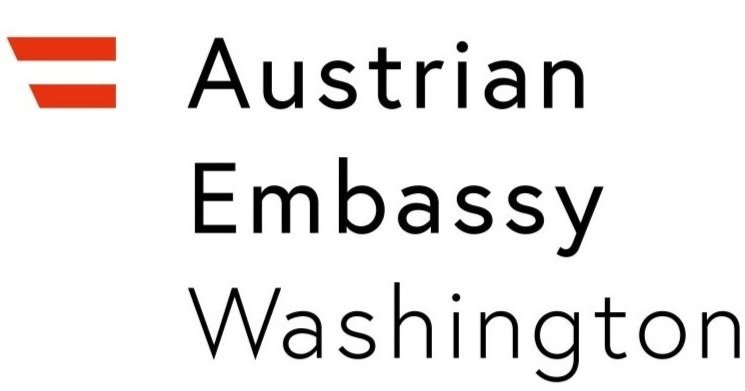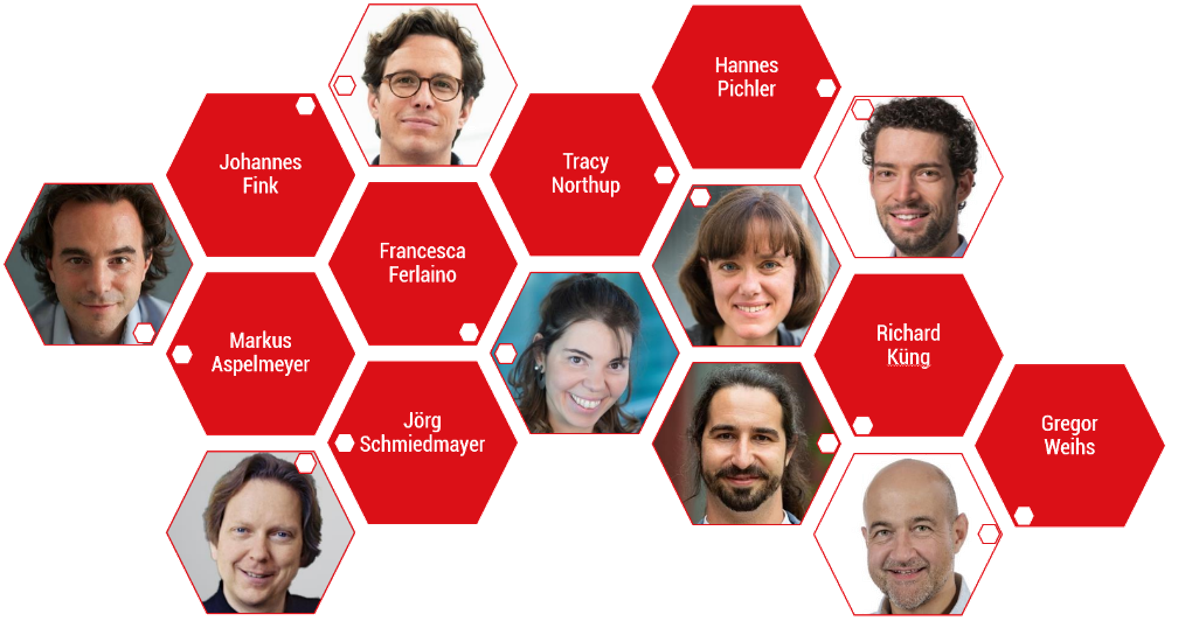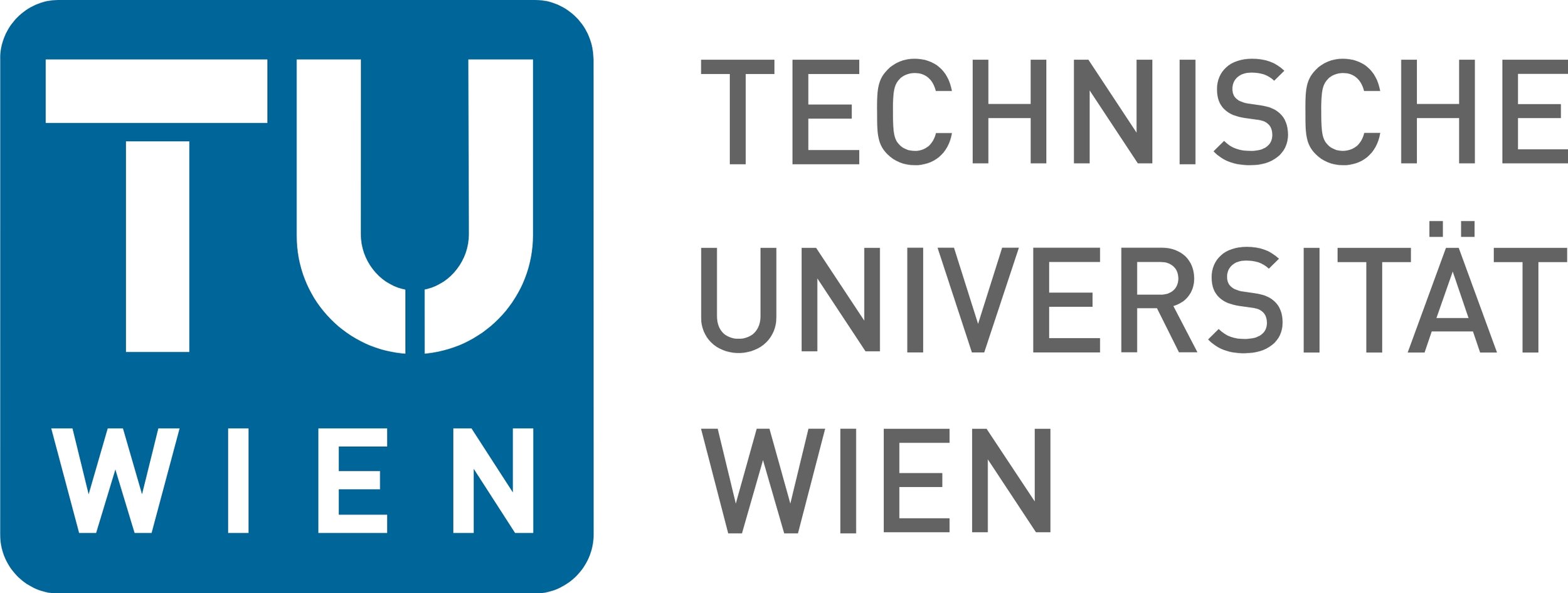Quantum Science Austria – Bringing the Quantum Community in Austria Together
Map of Austria showing the locations of the institutions which make up quantA
An important step in consolidating Austria’s quantum ecosystem and taking it into the future, is the Cluster of Excellence “Quantum Science Austria” (quantA), funded by the Austrian Science Fund (FWF). Formed in 2023 it aims to strengthen Austria’s position as a leading nation in quantum research and innovation. With a grant of 21 million Euros and 14 million Euros from the participating institutions for the first five years, quantA brings together researchers from all across Austria. The University of Innsbruck, the University of Vienna, the Vienna University of Technology, the Johannes Kepler University of Linz, the Institute of Science and Technology Austria, and the Austrian Academy of Sciences join forces in fundamental research in quantum science.
Three Main Research Areas
The unique expertise available in Austria is the basis for investigating outstanding fundamental questions in the three research areas: Quantum Nature of Space, Time, and Gravity (STG), New Paradigms for Quantum Information Science (QIS), and Physics of Engineered Quantum Many-Body Systems (MBS). These areas are strongly linked: for example, many-body correlations may significantly increase measurement capabilities such as the sensitivity to gravitational effects, while the quantum information approach to understanding many-body systems will lead to new insights into the emergence of physical theories at different scales and facilitates the practical development of complex quantum devices.
Schroedinger’s Cat.
Photo: Harald Ritsch/UIBK
“All three research areas have interesting and important open questions, that quantA puts at the core of its long-term research program”, emphasizes quantA Director of Research, Gregor Weihs. “They are promising because recent technical developments will allow substantial progress and possibly real breakthroughs in the near future.” Regarding STG, quantA wants to shed light on the all-important relation between quantum physics and the fabric of space-time. In QIS, it uses quantum information concepts to tackle three of the biggest challenges: the optimal use of quantum and classical resources, their cross-fertilization in hybrid systems, and the efficient classical description and simulation of multipartite quantum systems. Finally, in MBS, the availability of unprecedented quantum simulators will allow addressing ambitious questions such as universality in non-equilibrium physics and emergent many-body phenomena.
Core Projects, Fellowships and Discovery Projects to attract young talent from around the world
The main programs and initiatives to carry out these ambitious research fields, are the inter-institutional Core Projects. “Core Projects are collaborative research projects that work towards a set of innovative objectives in accordance with the research questions of one or more of the three research areas”, explains Weihs. “Characteristic of Core Projects is that they need synergies and essential input from more than one group to be accomplished. So, collaboration, efficient use of equipment, sharing of information and cooperation shape these projects.” 18 Core Projects were launched since fall 2023, involving 40 principal investigators, 40 PhD students and 15 postdoc positions at all six institutions.
The quantA Fellowship Program, on the other hand, has the primary objective of developing the careers of young researchers while, at the same time, Fellows bring in outside knowledge and experience and thus contribute to the cluster’s research program in innovative ways. Thus, quantA is looking for the most creative minds, whose ideas fit into the scope of the research program and overlap with at least one of the three research areas. “This program is especially designed for international applicants, who want to become part of Austria’s quantum hub and collaborate with one or more of the 68 research groups,” states Gregor Weihs.
“Discovery Projects, on the other hand, are small, short-term projects in the field of quantum science that seek to break the barriers erected by conventional thinking,” emphasizes Weihs, who also points out: “Because unconventional goals and approaches often originate from younger scientists, this program is reserved for them as well.” Discovery Projects attempt to achieve a near-term research goal with unconventional means, elucidate a research question off the beaten path, or develop a new method towards a longer-term goal. The project must fit into the framework research program and contribute to the scientific goals of quantA. Nearly 50 received applications for the first call, show the high potential for such projects. Twelve such projects will be carried out over the next two years at all six institutions.
Photo: Harald Ritsch/UIBK
Training the new generation of researchers
Beside it’s main focus on research, the cluster also puts a strong emphasis on creating an attractive and innovative training environment for young researchers. “The goals of the Training Unit within the cluster is offering a broad education in quantum science at all levels, from bachelor’s to master’s and PhD programs, and also providing training for postdocs and junior research-group leader,” explains the cluster’s Director of Training, Jörg Schmiedmayer. “Training won’t be limited to academic pursuits: the value chain from science to technology to business and commercial success is driven by talented individuals. Finding them, educating them and giving them the opportunity and space to develop and grow is the central objective of quantA’s training program.” This includes efforts to modernize curricula, develop innovative teaching tools, foster collaborative learning, ensure cross-institution accessibility, help in career planning, offer a support network for the PhD candidates, with a special focus on mental health and well-being. “In addition, to prepare them for a fast-changing job environment it is vital for students and postdocs to acquire strong transferable skills including science communication, writing for science and the public, presentation for diverse audiences, and all aspects of project and grant writing and management”, is Schmiedmayer convinced. Rather than through traditional teaching, quantA is seeking to build a vibrant community among its young researchers, which should largely be self-governed. This begins with attracting young, diverse talent both nationally and internationally and empowering the young researchers to chart their own career paths, while getting the support they themselves deem necessary.
Communicating science to the public
In view of the potentially huge technological and societal impact of quantum science and technology, quantA strives to go much beyond the usual science-to-science dissemination and wants to make sure that stakeholders in sectors such as industry, non-profit, or government as well as the general public will be informed about the developments in quantum science. It is the task of the cluster’s Communication Unit to raise science awareness and to transfer knowledge into industry and society. quantA's Director of Communication, Richard Küng, explains this emphasis on outreach: “Beyond just giving back to society, science outreach is essential in attracting young minds to fields that are important for the future and it helps to counter fake news and skepticism towards science. On the one hand, quantum science is widely regarded as fascinating and triggers the interest of curious students already in middle and high school. On the other hand, it is seen as a highly complex subject, which is difficult to understand even for many scientists in neighboring fields. In addition, the relevance of quantum science and technology in everyday life and the potential for new applications are only gradually reaching the public.” quantA strives to grow public awareness via various channels: website, social media campaigns, podcast, events, school engagements, etc. In fulfilling its societal goals, quantA wants to offer female role models to young women and to empower other under-represented groups. In going beyond what is commonly phrased as "responsible science", quantA tries to foster a culture of permanent exchange between scientists and the public. It will reach out to all generations to demystify quantum science and technology so that it can best benefit society.
quantA Board of Directors
Overall, quantA strives to support and develop not only the quantum science community but extend further to become Austria’s “hub for all things quantum”, bringing together academia, industry, policy makers and other stakeholders and therefore playing a vital part in Austria’s quantum landscape













